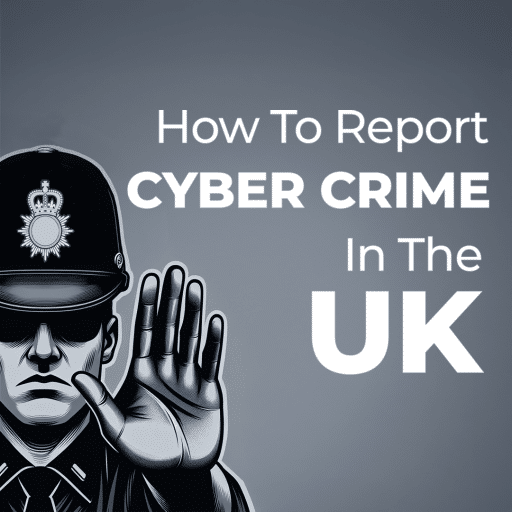As the internet grows increasingly central to our lives, cybercrime has become a pressing issue affecting individuals, businesses, and even governments. Fortunately, the Federal Bureau of Investigation (FBI) provides resources for reporting cybercriminals. This guide will walk you through what cybercrimes the FBI handles, the services offered by their Internet Crime Complaint Center (IC3), and when another agency might be more appropriate for your report.
What Cybercrimes Does the IC3 Handle?
The FBI’s Internet Crime Complaint Center (IC3) is designed to process reports of cybercrimes affecting individuals and businesses in the United States. They deal with a wide range of cybercrimes, including:
- Online Extortion and Sextortion: This includes threats to release sensitive information unless a ransom is paid, also known as financial sextortion.
- Phishing and Spoofing: Fraudulent attempts to obtain sensitive information by disguising as a trustworthy entity.
- Identity Theft: The use of someone’s personal information to commit fraud or other crimes.
- Tech Support Scams: Fraudulent schemes where victims are tricked into paying for fake tech services or hacked by impersonating legitimate organizations.
- Business Email Compromise (BEC): Scams targeting businesses to trick them into making fraudulent payments.
- Online Fraud: Includes non-delivery of goods, auction fraud, or overpayment scams.
- Cyberattacks: Such as Distributed Denial of Service (DDoS) attacks, ransomware, or unauthorized network access.
By focusing on these crimes, the IC3 aims to identify trends, facilitate investigations, and support victims of internet-based criminal activity.
What Services Does the IC3 Provide?
The IC3 serves as a centralized platform for reporting internet-based crimes. While the center itself does not investigate individual complaints, it provides the following services:
- Complaint Submission: Victims can submit a detailed report of the crime through the IC3’s online complaint form. This information is shared with relevant law enforcement agencies for investigation.
- Data Analysis: The IC3 analyzes trends and patterns in cybercrime to support broader FBI investigations and public awareness campaigns.
- Resource Guidance: The IC3’s website provides resources for victims, including steps to mitigate the impact of the crime, such as freezing credit reports or strengthening cybersecurity measures.
- Collaboration with Other Agencies: The IC3 works with various federal, state, and local law enforcement partners to address cybercrime effectively.
When Should You Report to Another Agency?
While the IC3 handles a wide range of cybercrimes, certain situations may require you to report to a specialized agency. Below are examples of incidents and the agencies that handle them:
- Crimes Involving Children: If the crime involves child exploitation, such as the distribution of child pornography or online grooming, it should be reported to the National Center for Missing & Exploited Children (NCMEC) through their CyberTipline at www.missingkids.org.
- Financial Crimes: For scams involving investment fraud or other complex financial crimes, consider reporting to the Securities and Exchange Commission (SEC) or the Federal Trade Commission (FTC) in addition to the IC3.
- Local Matters: For crimes that appear to be localized, such as harassment or revenge porn from someone known to you or small-scale fraud, you might want to contact your local police department first. They can coordinate with the FBI if necessary.
- Health-Related Scams: If a cybercrime involves fraudulent medical services or the illegal sale of medications, report it to the U.S. Food and Drug Administration (FDA) or Medicare’s Fraud Hotline.
Steps to File a Report with the IC3
To report a cybercrime to the IC3, follow these steps:
- Collect Evidence: Gather all relevant details about the crime, such as emails, messages, screenshots, and financial records.
- Visit the IC3 Website: Go to www.ic3.gov and select the option to file a complaint.
- Fill Out the Form: Provide detailed information about the crime, including dates, descriptions, and any identifying information about the perpetrator.
- Follow Up: While you may not receive individual updates, you can track trends and news through the IC3’s public reports.
Next Steps For Victims.
Reporting cybercriminals is a critical step in combating online threats and protecting yourself and others from future harm. The IC3 serves as a valuable resource for addressing a variety of internet-based crimes, but knowing when to report blackmail online to specialized agencies can ensure your complaint is directed to the appropriate authorities. By taking action, you contribute to making the digital world a safer place for everyone.
If you are a victim of sextortion or digital blackmail, the cybersecurity experts at Digital Forensics Corp. are available 24/7 to assist you. With any of our services, we compile reporting which you can submit to law enforcement agencies or attorneys to help you seek justice as a victim of cybercrime. For immediate assistance, contact our Blackmail Helpline.
DISCLAIMER: THIS POST IS FOR INFORMATIONAL PURPOSES ONLY AND IS NOT TO BE CONSIDERED LEGAL ADVICE ON ANY SUBJECT MATTER. DIGITAL FORENSICS CORP. IS NOT A LAWFIRM AND DOES NOT PROVIDE LEGAL ADVICE OR SERVICES. By viewing posts, the reader understands there is no attorney-client relationship, the post should not be used as a substitute for legal advice from a licensed professional attorney, and readers are urged to consult their own legal counsel on any specific legal questions concerning a specific situation.







